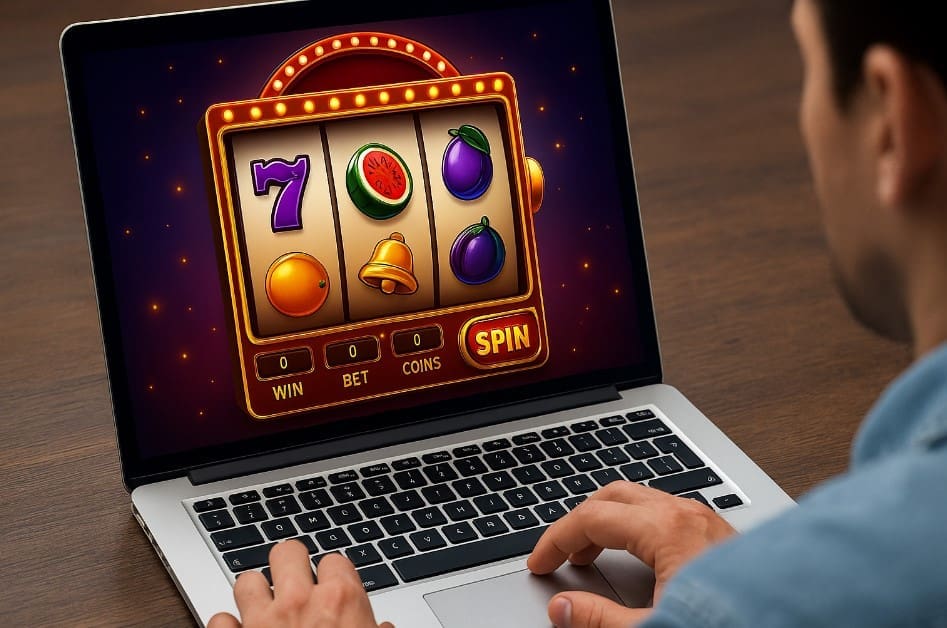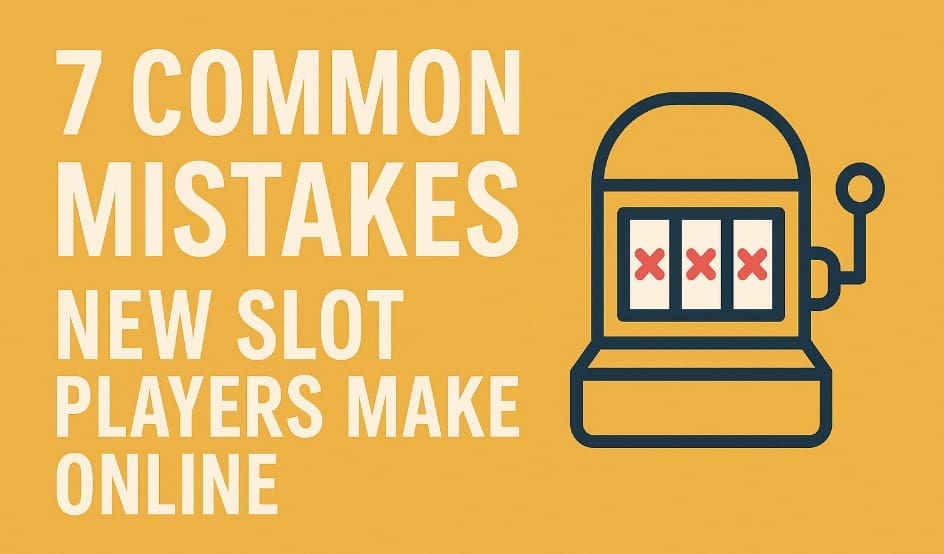Slot machines may look like the simplest game in the casino, but they have more layers than most beginners give them credit for. Online slots are built to be easy—click, spin, hope—but the difference between having a good time and draining your balance in 20 minutes often comes down to avoiding the same rookie slip-ups. I’ve sat with enough friends who’ve gone through this to recognize the patterns. And let me tell you, it’s rarely just “bad luck.”
Why avoiding mistakes matters
When someone first logs into an online casino, they usually treat it like Netflix: scroll through all the flashy titles, pick one that looks fun, and hit play. The trouble is, unlike watching a movie, here your wallet’s on the line. Most of the losses new players face don’t happen because the game is rigged or because they’re “unlucky.” It’s because they skipped something obvious, like the rules, or they let excitement override a bit of common sense. I’ve been guilty of it myself—thinking I had the game figured out after a few spins, only to watch my balance nose-dive.
Ignoring game rules and paytables
This one is so common it’s almost a rite of passage. A friend of mine once texted me in outrage: “I just hit four of the same symbol and got nothing—scam!” I asked if they had checked the paytable. Of course, they hadn’t. Turned out they weren’t on an active payline. That’s exactly what the paytable explains: which lines pay, what symbols matter, and what triggers bonuses.
NetEnt’s Starburst is straightforward—you barely need a manual. But take Microgaming’s Immortal Romance: if you don’t glance at the paytable, you’d never realize the depth of the bonus chamber or how wilds behave. Ten seconds of reading saves a lot of head-scratching later.
Failing at bankroll management
If there’s one thing new players underestimate, it’s how fast money disappears when you don’t pace yourself. I once watched a mate load $200 into his account, crank bets up to $5 a spin, and burn through it in less than 15 minutes. He just shrugged, “I thought I’d hit something big.” Spoiler: he didn’t.
Bankroll management doesn’t have to be rocket science. If you’ve got $100, split it into chunks. Maybe four $25 sessions. If one goes south, that’s your cue to stop, not to reload. It sounds boring, but it makes gambling way more enjoyable. Instead of being frustrated after ten minutes, you can stretch play across the week.
Chasing losses
Here’s the one that trips up almost everyone sooner or later. You’re down fifty bucks, you’re annoyed, and you think, “One big bet will fix it.” That’s the moment slots eat you alive. The random number generator doesn’t care about your streak. It doesn’t “owe” you a win.
I learned this the hard way playing Pragmatic Play’s Sweet Bonanza. After 30 dry spins, I doubled my bet out of pure frustration. Guess what happened? Another dry spin. If anything, chasing losses makes the emotional sting worse because now you’ve risked double the money. The smartest players treat losses like movie tickets: paid for the show, enjoyed the ride, time to leave.
Not checking RTP and volatility
RTP (Return to Player) and volatility aren’t exactly thrilling terms, but knowing them gives you a clearer picture of what you’re walking into. A 96% RTP slot is friendlier long-term than a 92% one. Volatility tells you the mood of the game—steady dribbles of wins or long droughts broken by big bursts.
Playtech slots often sit in that sweet mid-range of volatility, good for casual play. Novomatic’s Book of Ra has higher swings, which is why it’s so addictive—you wait for the bonus round to land, and when it does, the room feels like it explodes. Ignore these stats, and you’re left wondering why the game feels “cold” or “unfair.”
Overlooking bonus terms and conditions

Casino bonuses can feel like free money: deposit $50, suddenly you’ve got $100 to play with. But buried in the terms are the traps. A friend of mine once scored $400 in wins on bonus funds, only to realize the casino had a 40x wagering requirement. That meant $16,000 had to be spun before a single dollar could be cashed out. He laughed it off, but it stung.
That’s why it pays to skim the fine print. Some casinos are fairer than others. I’ve seen Australian pokies apps with more straightforward rules than big-name European sites. If you’re going to use bonuses, do it for fun, not because you think you’ve hacked the system.
Skipping free play or demo modes
Demos exist for a reason. They’re your test drive. Yet beginners often dive straight into real money, thinking “practice is for later.” I did it myself with Play’n GO’s Moon Princess—didn’t realize the cascading reels worked differently, burned through my budget trying to “figure it out.” Had I tried the free mode first, I’d have avoided the tuition fee.
Demos let you see if you even like the slot’s pacing. If it bores you in demo, it’ll bore you with real cash. And if it excites you, at least you know how the features tick before risking your deposit.
Playing too fast or relying on auto-play
The adrenaline of clicking “spin” over and over is real. But when you’re slamming the button, your bankroll melts away almost invisibly. Auto-play makes it worse—you can blink and find 100 spins gone.
I once left auto-play running on Microgaming’s Thunderstruck II while making tea, came back five minutes later, and half my balance was gone. Lesson learned: keep the pace human. Pause to watch the animations, enjoy the theme, and give yourself time to process wins and losses. Slowing down stretches the fun.
How to play online slots responsibly
Gambling isn’t about outsmarting the machine; it’s about knowing your limits and playing within them. Think of it as buying entertainment, not buying profits. A few things that actually help:
- Decide your budget before you log in, not after you’re tilting.
- Use casino tools like deposit caps—they’re surprisingly effective.
- Alternate between free play and real money to balance risk.
- Don’t treat a win as a target for bigger bets—just pocket it.
- Walk away when you feel annoyed. Slots should be fun, not stressful.
Frequently asked questions about slot mistakes
Do beginners lose more often than seasoned players?
Not really. The odds are identical thanks to RNGs. Experienced players just burn through their money more slowly because they plan better.
Is chasing high RTP slots worth it?
Yes, but don’t expect miracles. A 96% RTP beats a 92%, but short-term swings will still batter you. It’s more about improving your chances over months, not minutes.
Can changing bets beat volatility?
Nope. Betting patterns can change your pacing, but they don’t override the slot’s built-in volatility. A high-volatility game can stay ice cold no matter what you bet.
Why do casinos dangle such big bonuses?
Because they know the terms make them hard to cash out. It’s marketing. Treat bonuses like extra playtime, not free withdrawals.
Is auto-play safe to use?
It’s safe, but dangerous for your balance. Auto-play removes the natural pauses where you’d normally think, “Should I stop?” Use it in short bursts if at all.


